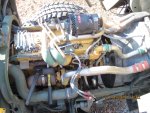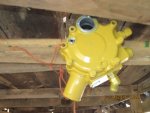coachgeo
Well-known member
- 5,212
- 3,550
- 113
- Location
- North of Cincy OH
Thanks for posting this. You are correct was thinking of the 2003 study.It looks like that is the later (2003) study. Here's the first one (1998 ).....
Sounds like need to look at a way to get more weight carried by other places to lesson it some on the Water pump since some in here are still having issues.
Can we get folk to post pictures of their brackets? Maybe the folk who have had problems did not get on their truck an updated bracket?
this study interestingly said the larger rear driveline (4") would work as a delay in damages but not stop it when it comes to the Bell Housing and the Tcase Housing. VERY INTERESTING. Must be why the low tolerances of play got put into the TM's. Interesting that they stayed with that route up untill 2008 instead of swapping to the suggested driveshaft change the 2003 study recommended.
98 study also suggest the use of the 6x6 axle but possibly with different angles built into various mounts. (engine and tranny mounts) Hmmm.... though it was noted that suggested angles changed would improve rear driveline issues..... doing so would negatively effect front driveshaft angles thus potentially cause issues there.
Soooooo what "all" did they do when they built the A1P2's with the 6x6 axle???? (power divider Box axle) hmmmm...??? Anyone got any connections with folk who may know more about this?
Thanks again for digging out this info.
Last edited:




